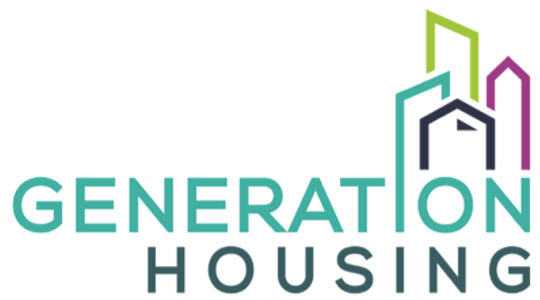While the 2020-2021 California Legislative Session was largely dominated by the COVID-19 health crisis, there were significant efforts made at changing statewide housing policy. The Legislative Session included over a dozen housing bills, building on legislative efforts in recent years to tackle California’s housing crisis. Most notably, Senate leadership put forward a 2021 Housing Production Package, referred to as “Building Opportunities for All,” which included eleven Senate bills all aimed at expanding the state’s housing supply. Out of those eleven bills, nine of them passed both houses and were sent to the Governor’s desk for signature. Each of those has the potential to inch us toward our housing goals; Generation Housing prioritized and supported the following:
- SB 9, the California Housing and More Opportunity Efficiency (HOME) law, allows property owners of single-family zoned lots to divide their property into two parcels and construct up to four units. This effectively legalized fourplexes in areas that were previously restricted to only one home by requiring local jurisdictions to approve lot splits and duplexes ministerially— or “by right” — meaning that officials would have to approve it so long as they don’t conflict with zoning standards. This is commonly referred to as objective zoning standards.
- SB-9 is not without its limits. The law requires that any participating property owners who want to split their parcel must also agree to live in one of the housing units for at least three years, unless the owner is a nonprofit. And certain property is exempt from the legislation including, earthquake fault zones, sites within historic or landmark districts, and land within the “very high” fire hazard zone — unless the development follows state mitigation rules.
- SB 10 makes it easier for cities to zone for smaller, lower-cost housing developments of up to 10 units per parcel in transit-rich or urban infill sites. With its passage, SB 10 offers local governments a pathway for streamlining upzoning in these areas without the threat of being mired in decades-long legal appeals and litigation. However, the law leaves plenty of local control. Most critically, this is an “opt-in” law; a local legislative body must pass a resolution to adopt this plan; and it requires that any changes to local initiatives passed by voters that this law will override must be approved by the local legislative body with a 2/3rd vote.
Generation Housing also celebrates the passage of AB 602, The Mitigation Fee Act. AB 602 increases impact fee transparency by requiring governments to identify and explain the intended use of all fees, and requires fees to be proportional to the size of a new home so that smaller individual homes pay smaller fees. Prior to the passage of this legislation, impact fees incentivised larger, more expensive projects, because the fees were assessed by unit rather than by size — despite smaller apartments having smaller carbon footprints, less water usage, and making greater headway in our housing goals than single-family homes. The bill also requires local governments to improve the transparency of their housing impact fees, by identifying all of the fees and explaining their intended use.
While this Legislative Session is adjourned until the new year, the work doesn’t stop. We are actively engaging with our regional and statewide partners to develop a legislative package that cross-pollinates the shared visions of both housing advocates, environmentalists, and business owners alike.

